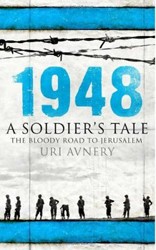This title covers a multi-faceted subject previously explored from many perspectives: modern Israel’s struggle for survival in a hostile environment, from its founding in 1948 into the early twenty-first century. Eric Gartman, a United States Department of Defense intelligence analyst, has lived and worked in Israel during several stages of his life and career. He begins by briefly chronicling the rise and fall of the ancient Jewish state, the long exile in the European Diaspora, and the emergence of modern Zionism. Sections on the British Mandate and World War II periods are especially strong In the background is the burdensome and unifying task of in gathering the exiles and the need to confirm a connection to the Jewish past. Military, diplomatic, and political challenges are presented in detail. Readers interested in Israel’s military challenges from the War for Independence to the most recent Gaza incursion will appreciate the maps and discussion of tactics. The role of diplomacy in attempting to effect an agreement between Israelis and Arabs is probed in topics such as the Balfour Declaration, ceasefires, treaties with Egypt and Jordan, Camp David, and the Oslo Accords. Events are viewed in the context of domestic occurrences and international relationships.
Israel is described as dependent on the designs and policies of competing larger powers, as during the Suez Crisis and the Cold War. Israeli heroes and Arab adversaries are profiled. Although clearly pro-Israel, Gartman treats most Arab leaders with respect and makes an effort to understand Arab grievances. He avoids polemical rhetoric. He credits the survival of Israel, which he metaphorically calls “The Third Temple,” to the more advanced socioeconomic development of its outnumbered people and to their “cohesion.” He argues that Israel is no longer at risk of destruction by its neighbors in a conventional war, although the state remains the target of terrorism. This 2015 publication presents only a limited discussion of the Iranian nuclear threat. In an evaluation of Israeli conduct, past and present, the author does not hesitate to criticize both policies which may have encouraged Palestinians to flee their homes during the War for Independence as well as Jewish terrorism.
This book is written in a popular style and based on impressive research. The work succeeds as both an overview and as a reference source.





